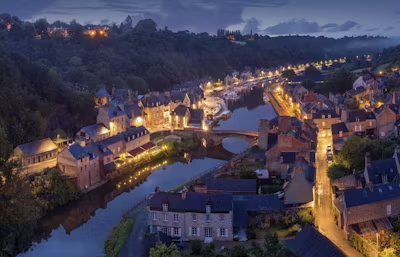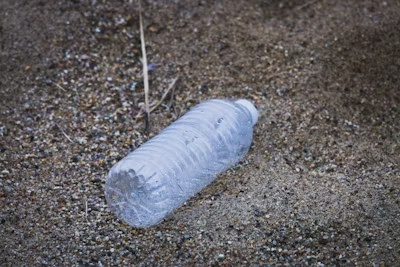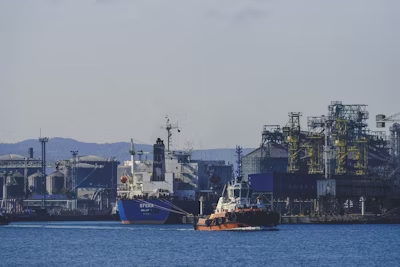
Neoen, a leading global independent renewable energy producer, has announced that it has been awarded seven new solar and agrisolar projects totaling 164 MWp in France’s latest tender. This significant win solidifies Neoen’s position as a major player in the French renewable energy market. With this latest success, Neoen has secured a total of over 2.5 GW of capacity in France. The newly awarded projects are expected to be commissioned between 2026 and 2029, with one project, Tourneuve, scheduled for 2032 due to necessary grid upgrades. Neoen’s commitment to sustainable development is evident in its focus on agrisolar projects, which combine solar energy generation with agricultural activities. Four of the seven projects awarded are agrivoltaic sites, demonstrating the company’s dedication to innovative solutions that maximize land use and minimize environmental impact. By working closely with local communities and authorities, Neoen ensures that its projects are well-integrated into the local landscape and contribute to the region’s economic and environmental goals. This latest achievement underscores Neoen’s strong track record in developing and operating renewable energy projects. The company remains committed to driving the transition to a low-carbon future and delivering sustainable energy solutions. Over half of Neoen’s solar projects in France features…

Finnish venture capital firm Maki.vc has launched its third fund, securing €100 million to invest in pre-seed and seed-stage startups across the Nordics and Northern Europe. This new fund, categorized as an Article 8 (light green) fund, emphasizes environmental and social considerations alongside financial returns, aligning with Maki.vc’s focus on fostering positive societal impact through its investments. The fund boasts the backing of over 50 experienced limited partners, including founders of prominent tech companies like Skype, Wise, and Supercell. This network brings valuable expertise in scaling and commercializing technology startups. Maki.vc prioritizes the Nordic region due to its strong public investment landscape, deep tech expertise, and track record for launching successful startups. The firm has already made its first investments from the new fund, including Distance Technologies (glasses-free mixed reality), QMill (quantum algorithms for industry), and Ever Cars (online electric vehicle marketplace). Founded in 2018, Maki.vc specializes in deep tech and brand-driven companies. They favor ventures demonstrating scientific advancements, strong intellectual property, and a deep understanding of customer needs. Typically, Maki.vc invests between €300,000 and €3 million in pre-seed or seed-stage companies, allocating two-thirds of the new fund for follow-on investments to support the ongoing growth of their portfolio companies….

Tourlane, the AI-powered travel platform, has successfully raised €25 million in a Series D funding round led by Sequoia Capital. The funding will fuel the company’s growth and innovation, enabling it to further enhance its personalized travel experiences and expand its global reach. Tourlane’s innovative approach leverages AI to curate customized travel itineraries, tailored to individual preferences and needs. By analyzing vast amounts of data, the platform can recommend the best destinations, accommodations, and activities, streamlining the travel planning process. The company’s focus on personalized travel experiences has resonated with customers, resulting in strong growth and a loyal user base. With this new funding, Tourlane aims to further refine its AI algorithms, expand its destination offerings, and enhance its customer support services. Andrew Reed, Partner at Sequoia Capital, commented, “Tourlane’s vision aligns perfectly with the growing demand for personalized and seamless travel experiences. We believe that AI has the potential to revolutionize the travel industry, and Tourlane is at the forefront of this transformation.” As Tourlane continues to innovate and expand, the company is committed to providing exceptional travel experiences while prioritizing sustainability and responsible tourism

A consortium of leading European organizations, including European Bioplastics, AIMPLAS, TotalEnergies Corbion, Novamont, Corbion, Sulapac, and Kaneka, has launched the ReBioCycle project. This ambitious initiative, led by University College Dublin and BiOrbic Bioeconomy SFI Research Centre, aims to develop and implement new technologies for recycling biobased biodegradable plastics. The ReBioCycle project focuses on separating and recycling three types of bioplastics: polylactic acid (PLA), polyhydroxyalkanoates (PHAs), and starch-based bioplastics. By re-adapting and upscaling existing sorting technologies, the project aims to demonstrate the feasibility and economic viability of bioplastic recycling at an industrial scale. Prof. Kevin O’ Connor, coordinator of the project, expects that the “ReBioCycle will scale up and demonstrate biobased biodegradable plastics recycling technologies. Biobased biodegradable plastics can be kept in the material cycle for as long as possible through innovative recycling technologies, thus demonstrating that end-of-life biobased biodegradable plastics can be used in the circular bioeconomy.” The project will also contribute to the development of a European blueprint for circular bioplastics, providing valuable insights into the state-of-the-art recycling technologies and their potential impact on the bioeconomy. This blueprint will support the implementation of EU policies such as the Bioeconomy Strategy, the Circular Economy Action Plan, and the future Packaging…

Russia has made significant strides in its Arctic ambitions with the launch of the Chukotka, the fifth nuclear-powered icebreaker in its Project 22220 series. The ceremony, presided over by Russian President Vladimir Putin, took place at the Baltic Shipyard. The Chukotka, a 173-meter-long vessel capable of breaking ice up to three meters thick, will join the ranks of the Artika, Sibir, Ural, and Yakutia, which are already operational in the Northern Sea Route. The project aims to enhance Russia’s presence in the Arctic and facilitate year-round navigation in the region. President Putin emphasized the importance of the project, stating, “Our entire domestic economy should be built on our own technologies and groundbreaking scientific solutions.” He further highlighted the strategic significance of the Northern Sea Route, emphasizing the need to improve navigation safety and reliability. The launch of the Chukotka marks a significant milestone for Russia’s Arctic development. The vessel will play a crucial role in supporting economic activities in the region, including shipping, resource extraction, and scientific research.

Latvia has taken a significant step towards a greener future with the commissioning of its first utility-scale battery energy storage system (BESS). The 10MW/20MWh BESS, located in Targale, Ventspils region, is integrated with the 58.8MW Targale Wind Park. Developed by Utilitas Wind, a subsidiary of Estonian energy company Utilitas, the BESS project is a €7 million investment. The system comprises six containerized BESS units, inverters, transformers, and a distribution point container. Hoymiles, a Chinese solar inverter manufacturer, provided the BESS enclosures and power conversion system inverters. The BESS will enable the storage of excess wind energy generated during periods of high production and its subsequent release to the grid during peak demand or low renewable generation. This will contribute to grid stability and enhance the overall reliability of the power supply. The opening event was attended by guests and dignitaries including Latvia’s climate and energy minister Kaspars Melnis, who said that hybrid energy parks that combine different clean energy technologies like wind and batteries “will become common practice in the future, ensuring a stable, minimally weather-dependent energy supply.” Melnis said the project set a high bar for wind farms in the country and noted their importance in the context of…

The Swedish government has announced the rejection of 13 applications for offshore wind farm projects in the Baltic Sea, south of the Sea of Åland. The decision was made due to concerns about potential impacts on national defense. Despite the potential for clean energy generation and the inclusion of precautionary measures in the project proposals, the government prioritized national security interests. Climate and Environment Minister Romina Pourmokhtari stated that the government carefully considered expert opinions and public input before making its decision. Defense Minister Pål Jonson emphasized the importance of national security in light of the current geopolitical situation. As a result of this decision, Hexicon’s joint venture company, Freja Offshore, will terminate work on its Cirrus and Dyning projects in Sweden. However, the company remains committed to its other projects, including the Mareld wind farm, which is currently under review by the Swedish government. This development highlights the complex interplay between energy transition goals and national security concerns. While renewable energy projects are essential for a sustainable future, governments must also consider broader geopolitical factors when making decisions about critical infrastructure.

Researchers from the University of Nottingham’s School of Chemistry are at the forefront of a groundbreaking new laser technology project, SUPERLASER. This EU-funded initiative aims to develop a new type of laser based on halide perovskite materials, offering superior performance and environmental sustainability. The project, coordinated by the National Centre for Scientific Research “Demokritos” in Athens, seeks to address the limitations of current laser technologies, such as their reliance on critical raw materials and thermal noise instability. By harnessing the unique properties of halide perovskites, SUPERLASER aims to create lasers that are more stable, precise, and environmentally friendly. Dr. Katherine Inzani’s group at the University of Nottingham is leading the theoretical aspects of the project, using computational techniques to identify and predict the properties of optimal perovskite materials. This research will guide the experimental work of the project partners, enabling the development of highly efficient and environmentally friendly laser devices. The SUPERLASER project is funded by the European Innovation Council (EIC) Pathfinder Programme and involves a consortium of nine partners from seven countries. “This ambitious European effort will take us from theoretical materials predictions all the way to device fabrication, establishing a new type of laser that will be crucial…

Paleo, a Belgian biotechnology company, has announced a strategic partnership with Vienna-based foodtech company Revo Foods. The collaboration, funded by the European Union with a total project volume of €2.2 million, aims to develop a more realistic and nutritious vegan salmon alternative. The two companies will leverage their expertise to create a myoglobin protein, derived from precision fermentation, that will be integrated into Revo Foods’ 3D structured vegan salmon filet, “THE FILET – Inspired by Salmon.” This innovative approach will enhance the product’s appearance, taste, and nutritional value, bringing it closer to the experience of eating real salmon. Paleo’s precision fermentation technology allows for the production of animal proteins without the use of animals. The company currently produces beef myoglobin and is expanding its portfolio to include other proteins such as chicken, pork, tuna, and even mammoth. Revo Foods, on the other hand, specializes in 3D food-printing technology, which enables the precise structuring of multiple materials, including fats and proteins. The partnership between Paleo and Revo Foods represents a significant step forward in the development of sustainable and innovative food solutions. By combining their expertise, the two companies aim to create a more sustainable and delicious food future.

Air Liquide and Cementir Holding Group, through its fully owned subsidiary Aalborg Portland, have announced the launch of ACCSION, a groundbreaking carbon capture and storage (CCS) project. Located in Aalborg, Denmark, ACCSION aims to significantly reduce CO₂ emissions from the Aalborg Portland cement plant. The project will utilize Air Liquide’s proprietary CryocapTM technology to capture, purify, and liquefy approximately 95% of the CO₂ emitted by the cement kilns. The captured CO₂ will then be integrated into a new pipeline infrastructure and transported to onshore CO₂ storage facilities. By the end of 2029, ACCSION is expected to avoid 1.5 million tons of CO₂ emissions per year of operation. This will make it one of the first full onshore CCS value chains in Europe, demonstrating a significant step towards decarbonizing the cement industry. The European Commission has recognized the importance of this project by awarding it 220 million euros in project support under the EU Innovation Fund. This funding will be instrumental in making a final investment decision and initiating the project’s execution. This collaboration between Air Liquide and Cementir Holding Group highlights their commitment to driving innovation and sustainability in the industrial sector. By reducing CO₂ emissions from cement production, ACCSION…










